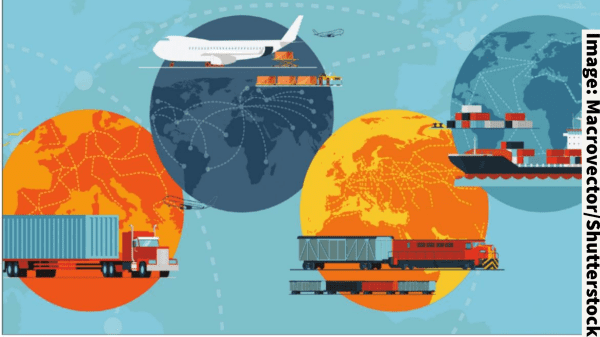It’s hardly news that much of the infrastructure of the United States—including its roadways—is long overdue for overhaul and upgrading.
For truckers, who spend most of their working lives on the road, the issue is especially critical.
“Delays in transit have a tremendous impact on anyone involved in the cold supply chain,” says Eric Arling, executive director of operations for Cincinnati, OH-based Integrity Express Logistics, LLC, BB #:261579. “Often transit times are tight to get product to market following the necessary safety protocols and shelf-life expectations of our customers.
“Infrastructure-related delays such as congestion, road closures, and deferred road maintenance present unique challenges that often require team drivers to ensure on-time delivery,” he adds.
“This increases the cost to move the load itself and is ultimately passed on to the consumer and taxpayer at the point of sale.”
In most major metropolitan areas, the infrastructure has not caught up with the increase in traffic, forcing commercial vehicles to travel at the height of congestion, causing transit delays and increasing the risk of collisions.
Matt Patterson, senior transportation manager for Sunrise Logistics, Inc., BB #:192796 based in Ephrata, PA, offers another perspective: “For standard over-the-road freight, quality of infrastructure has not had an overwhelming impact on quality and timing of deliveries.
“Where we’ve seen some impact is congestion on rail, leading to longer transit times, and further limiting available truckload capacity. Additionally, while largely due to both weather and heavy import volume, this past winter we saw major congestion at various ports throughout the Northeast. This resulted in limited availability for both chassis and gensets [generator sets or power units], and ultimately an increase in demurrage charges.”
For Jack Sawyer, president of Des Moines Transportation, Inc. BB #:154433 in Des Moines, IA, the biggest issue “is the condition of our bridges—the catastrophic failure of some bridges has caused terrible delays and expensive out-of-route miles.”
Parking Scarcity
Matters of concern to truckers are intimately intertwined. In a December 2020 poll conducted by the Truckload Carriers Association (TCA), when asked which issues should be of most concern to the U.S. transportation secretary, 18 percent of respondents said there were “too many to pick just one.”
Of the specific issues on the poll, the one ranked highest was parking, chosen by some 23 percent of respondents. Lee considers the parking problem “very acute” and says drivers have lost hours of service just looking for a place to park for a break or attempting to make deliveries.
“Consumer demand for shipping needs is only going to continue to grow at an exponential rate,” points out Shane Ryan, carrier sales manager at Sunrise Logistics. “To match the increase of drivers on the road, there will need to be more truck stops,” he says. “The current state of parking and rest stops for drivers is already limited—this may become a bigger problem soon if the building of new rest stops does not increase.”
Sawyer notes, “Parking is a problem compounded by some municipalities forbidding truck parking. Add that customers are not allowing trucks to wait at their facilities, and then some truck stops fence off parking for large trucking companies that rent part of their lot.”
According to Aaron Terrazas, director of economic research for Convoy, Inc., one trend that has mitigated parking problems has been “a shift toward drop and hook. It used to be that truckers would always pull the same trailer. With drop and hook, the trailer belongs to the facility. When parking overnight, they’re just parking the cab, rather than the cab and trailer.”
This is an excerpt from the Transportation & Logistics Supplement to the July/August 2021 issue of Produce Blueprints Magazine. Click here to read the whole supplement.



